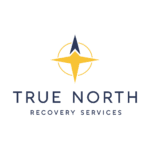Both OCD and ADHD affect millions of people, but they work in different ways. OCD traps people in cycles of intrusive thoughts and repetitive behaviors, while ADHD makes it hard to focus, sit still, or control impulses. Many people have both conditions at once, which makes diagnosis and treatment more complex. Understanding the differences helps you get the right support.
What Is OCD?
Obsessive-compulsive disorder (OCD) is an internalizing disorder where people respond to anxiety by turning inward. If you have OCD, you deal with unwanted, intrusive thoughts that create intense anxiety. To ease that anxiety, you perform repetitive behaviors or mental rituals.
Common OCD Symptoms
Obsessions (unwanted thoughts):
- Fear of contamination or germs
- Intrusive sexual or violent thoughts
- Need for things to be symmetrical or “just right”
- Excessive worry about harm coming to loved ones
- Religious or moral fears
Compulsions (repetitive behaviors):
- Excessive hand washing or cleaning
- Checking locks, appliances, or switches repeatedly
- Counting, tapping, or repeating words
- Arranging items in a specific order
- Seeking reassurance constantly
These behaviors take up significant time each day and interfere with normal activities.
What Is ADHD?
Attention-deficit hyperactivity disorder (ADHD) is an externalizing disorder that affects how individuals outwardly relate to their environment. ADHD is classified as a neurodevelopmental condition, meaning the onset occurs during the developmental period (typically early childhood) and has a strong genetic component.
Common ADHD Symptoms
Inattention:
- Difficulty focusing on tasks
- Easily distracted by external stimuli
- Forgetting daily activities or appointments
- Trouble organizing and completing tasks
- Avoiding tasks that require sustained mental effort
Hyperactivity:
- Fidgeting or squirming
- Unable to sit still for extended periods
- Excessive talking
- Always “on the go”
Impulsivity:
- Interrupting others
- Difficulty waiting turns
- Making quick decisions without thinking
- Acting without considering consequences
Key Differences Between OCD and ADHD
| Feature | OCD | ADHD |
|---|---|---|
| Core Issue | Anxiety and intrusive thoughts | Attention regulation and impulse control |
| Brain Activity | Overactive frontostriatal system | Underactive frontostriatal system |
| Response Style | Internal (turning inward) | External (outward behavior) |
| Behaviors | Ritualistic and purposeful | Random and impulsive |
| Risk-Taking | Risk-averse, cautious | Thrill-seeking, impulsive |
| Thought Pattern | Stuck on specific worries | Racing thoughts, easily distracted |
| Primary Neurotransmitter | Serotonin dysregulation | Dopamine dysregulation |
For ADHD, sustaining attention over a prolonged period of time is quite difficult, related to under-activity of the prefrontal cortex. In OCD, attention problems happen for different reasons—obsessive thoughts pull focus away from tasks at hand.
Can You Have Both OCD and ADHD?
Yes. Research shows roughly 30% or more of individuals with one condition also have the other. Studies indicate that co-occurrence rates range from 11% to 30%, depending on the population studied.
When both exist together, symptoms often become more severe. If an individual has both ADHD and OCD symptoms from a young age, they are more likely to experience greater OCD severity, persistence of symptoms, and a less favorable prognosis.
Why Do They Co-Occur?
Both conditions exhibit opposite patterns of brain activity in the frontostriatal system, the segment of the brain responsible for higher-order, motor, cognitive, and behavioral functions. Despite these opposite patterns, both conditions impair executive functions like planning, decision-making, and working memory.
How Are OCD and ADHD Diagnosed?
OCD Diagnosis
Mental health professionals look for:
- Presence of obsessions, compulsions, or both
- Behaviors that take up at least one hour per day
- Significant distress or impairment in daily life
- Symptoms not caused by substances or other medical conditions
ADHD Diagnosis
There’s no single test for ADHD. Diagnosis involves:
- Detailed medical and developmental history
- Symptom assessment using standardized questionnaires
- Evidence of symptoms in at least two settings (home, school, work)
- Symptoms present before age 12
- Ruling out other conditions with similar symptoms
Diagnosis Challenges
The third form of misdiagnosis (or rather missed diagnosis) is when the child or adult has both conditions, but only one is diagnosed. OCD can look like ADHD, especially in children. A child preoccupied with obsessive thoughts may appear inattentive or distracted.
Treatment Options
Treating OCD
Therapy: Exposure Plus Response Prevention (ERP) is the first-line treatment for OCD. ERP helps you face fears gradually while resisting the urge to perform compulsions.
Medication:
- SSRIs (Selective Serotonin Reuptake Inhibitors) are first-line medications
- Common options include fluoxetine, sertraline, and paroxetine
- Patients who respond to medication usually show a 40 to 60% reduction in OCD symptoms, while those who respond to CBT often report a 60 to 80% reduction
Treating ADHD
Medication:
- Stimulants (methylphenidate, amphetamine-based medications)
- Non-stimulants (atomoxetine, guanfacine)
Therapy:
- Cognitive Behavioral Therapy (CBT) for organizational skills
- Coaching for time management and daily tasks
- Behavior management training for parents
Treating Both Together
Limiting treatment to only one disorder when both are present appears to be associated with poorer outcomes. Treatment must address both conditions simultaneously.
Combined approach:
- CBT with ERP for OCD symptoms
- Organizational skills training for ADHD
- Medication management (SSRIs for OCD, stimulants or non-stimulants for ADHD)
- Pharmacological treatments should be introduced one at a time to avoid confusion around treatment response and side-effects
Important note: If a child with OCD is misdiagnosed with ADHD and placed on a stimulant, they may experience an exaggeration of symptoms. However, some people with both conditions find that stimulants help both sets of symptoms.
Overlapping Symptoms
Both conditions share some similarities:
- Executive function problems: Difficulty with planning, organizing, and completing tasks
- Attention issues: Though for different reasons
- Emotional regulation challenges: Both can cause mood swings and frustration
- Sleep problems: Approximately 70% of people with OCD struggle with sleep difficulties, and up to 70% of children with ADHD have sleep difficulties
- Anxiety and depression: Both conditions have high rates of co-occurring mood disorders
Behaviors That Look Similar
While skin-picking and hair-pulling are typically associated with OCD and classified as an obsessive-compulsive-related disorder, it can also occur in the context of ADHD. In ADHD, these behaviors relate to sensory stimulation and impulsivity rather than anxiety reduction.
Frequently Asked Questions
Is ADHD a form of OCD?
No. They are separate disorders with different causes and symptoms. ADHD is a neurodevelopmental disorder affecting attention and impulse control. OCD is an anxiety disorder involving intrusive thoughts and compulsive behaviors.
Does ADHD cause OCD?
No. ADHD doesn’t cause OCD, and OCD doesn’t cause ADHD. However, they can exist together in the same person.
Can OCD medication help ADHD?
Sometimes. While SSRIs are designed for OCD, some people find they help with certain ADHD symptoms like emotional regulation. However, they don’t address core ADHD symptoms like inattention and hyperactivity.
Can ADHD medication make OCD worse?
It depends. Some patients tolerate stimulants well and may notice an improvement to their OCD symptoms, while others might notice a worsening of their anxiety symptoms, including obsessive-compulsive tendencies. Treatment needs to be personalized.
How can I tell if my child has OCD or ADHD?
Assess the level of impulsivity and risk-taking: those with OCD only tend to be risk-averse and will not intentionally seek out thrill and excitement sensory experiences, while those with ADHD are more likely to be sensory/thrill-seeking and risk-taking. A professional evaluation is necessary for accurate diagnosis.
What happens if both conditions go untreated?
Untreated OCD and ADHD can significantly impair daily functioning, relationships, work or school performance, and overall quality of life. Both conditions may worsen over time without proper treatment. Early intervention leads to better outcomes.
Can you outgrow OCD or ADHD?
ADHD symptoms may change or lessen in adulthood, but the condition is typically lifelong. OCD is also generally chronic, though symptoms can improve with proper treatment. Neither condition is simply “outgrown.”
Living With OCD and ADHD
Managing both conditions requires patience and commitment. Here are practical strategies:
Daily Management Tips
- Create structured routines: Helps with ADHD organization while reducing OCD anxiety
- Use timers and reminders: Supports ADHD time management
- Practice mindfulness: Helps manage intrusive thoughts and impulsivity
- Break tasks into small steps: Makes activities less overwhelming
- Build a support network: Connect with support groups or therapy groups
- Prioritize sleep: Maintain consistent sleep schedules
- Exercise regularly: Physical activity helps both conditions
- Limit stress: Stress worsens symptoms of both disorders
When to Seek Professional Help
Get professional help if:
- Symptoms interfere with daily activities
- You feel overwhelmed or distressed
- Symptoms worsen despite self-help efforts
- You notice signs of depression or suicidal thoughts
- Relationships or work/school performance suffers
Finding Support for Mental Health and Addiction
Mental health conditions like OCD and ADHD can sometimes co-occur with substance use issues. At True North Recovery Services in Denver, we provide comprehensive outpatient addiction treatment and mental health support. Our compassionate team offers evidence-based care for substance use disorders, including opioid and alcohol addiction, alongside mental health services. We understand that recovery is personal and deeply connected to overall wellness. Our holistic approach supports individuals dealing with co-occurring conditions, helping them find their path to lasting recovery and a fulfilling life.
Getting help is not a sign of weakness. It’s a step toward understanding yourself better and living the life you deserve.


